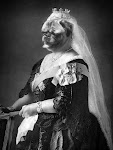My latest CD review for I Care If You Listen
Chihara Viola Music
Tuesday, April 09, 2013
KC Symphony: The Bells, Poulenc and Ecstasy
A capacity crowd in both audience and
performers filled Helzberg Hall as the Kansas City Symphony, Michael
Stern, Music Director, Conducting, the Kansas City Symphony Chorus
under Charles Bruffy, 3 vocal soloists and organist Caroline Robinson
presented a concert of three emotionally powerful works.
Although famous even to the most
casual of listener for his piano works, Sergei Rachmaninoff was also
well versed in the traditions of Russian choral music, especially
that of the Russian Orthodox Church. It should come as no surprise
that one of his many masterpieces and one of his personal favorite
pieces is the massive choral symphony “The Bells”, based on Edgar
Allen Poe's poem of the same name. Sadly audiences do not get to hear
it all that often since, in addition to chorus plus soprano, tenor,
and baritone soloists, the work calls for a huge orchestra with
expanded winds and brass, a whole battalion percussion (bells of
course), six horns, two harps, organ, piano and celeste. Certainly
the stage at the old Lyric Theatre would have sagged under the weight
of the massed humanity and equipment.
Cast in four movements similar to an
orchestral symphony, “The Bells” chronicles life's journey and
the ever present relationship with bells from youthful romance and
marriage, through decline and mortality and finally death itself.
“The Silver Sleigh Bells” was
perfectly bright and youthful with Stern evoking the movement's
kinship to Mahler especially to “Das Lied von der Erde”. The
“Golden Wedding Bells” was highlighted by Jessica Rivera's
passionate soprano and the chorus' deft accompaniment. “The Loud
Alarum Bells” was full of fury, fright and fire from the chorus and
orchestra, quite too much from the chorus actually. “The Mournful
Iron Bells” brought the cycle to a conflicted close. Death is no
longer panic and fear but a resigned and calm passage. English Horn
Kenneth Lawrence was his usual fine self in the extensive solos in
this movement.
The three soloists Matthew Plenk,
Tenor, Weston Hurt, Baritone and previously mentioned Jessica Rivera
were all in fine voice, but Hurt seemed to be a bit uncomfortable
with his part. The huge orchestra moved deftly when called upon and
roared mightily as well; the brass especially burnished and powerful.
The massive chorus, viscerally stunning
as it was, frequently overwhelmed all before it and its sheer size
rendered it more of a sound and texture than an important vocal
component. It was amusing to listen to the intermission
conversations/arguments among some patrons as to whether they were
singing in Russian, English or even German.
Poulenc's Concerto for Organ, Strings
and Timpani (1938) surprised his followers, accustomed as they were
to his saucy chamber music and classically inspired concertante
works. Shaken by the death of a friend, he turned to his first
religious works (Four Motets for a time of Penitence, Mass in G) and
the more profound and darker Concerto for Organ.
From the colossal opening chords,
evoking both Bach and the great French organ tradition, through the
more hymnal episodes and on to the dramatic final measures, young
organist Caroline Robinson was in command of the mighty Casavant. She
took full advantage of the organ's finely detailed reeds and flutes
and never let the organ's overall timbre become brittle and harsh in
the fortissimo passages. Stern kept the precise and fluid strings of
the orchestra well balanced with the organ and Timothy Jepson's
timpani provided firm support to the bass line, as they were called
upon by the composer to do. Cast in one long movement subdivided into
seven sections, the work can appear episodic and bogged down in the
slower passages if the forces are not careful. Stern, the orchestra
and Robinson did not succumb to all that and gave the audience a
powerful, lyrical and intense performance of this most popular of
organ concerti.
The ambitious program closed with the
Scriabin “Poem of Ecstasy”, a 20 minute, one movement tone poem
often referred to as his Symphony # 4. Written between 1905 and 1908
when the composer was drifting further away from the influence of
Wagner, Chopin and Liszt, “Poem” is scored for a large orchestra
with organ, 2 harps, and augmented winds and brass. Scriabin, in
notes for the premiere performance penned a typically mystic program
for the piece invoking the “Cosmos”, the “Joy Of Liberated
Action” and “an Orgy of Love.”
A successful performance of this
thickly scored, diffusely rhythmic music must not come off as a great
wall of hyperactive sound. The conductor has to gently but firmly
control the ebb and flow of the music taking us to one high point,
backing off a bit to reflect and then plunge head on unto the next.
This Stern did to great affect. Stern's performance unfolded with a
sense of urgency and forward pulse, aided by fine trumpet and violin
solos, impressive percussion, winds and solid strings and brass. (The
horns were impressive all evening.) Caroline Robinson was back on
the organ providing a solid foundation for the final pages and the
shattering final chord. It has been confirmed that this mighty chord
did not break any windows, albeit the capacity was certainly there.
Labels:
Classical Music,
Concert Reviews
Subscribe to:
Posts (Atom)


